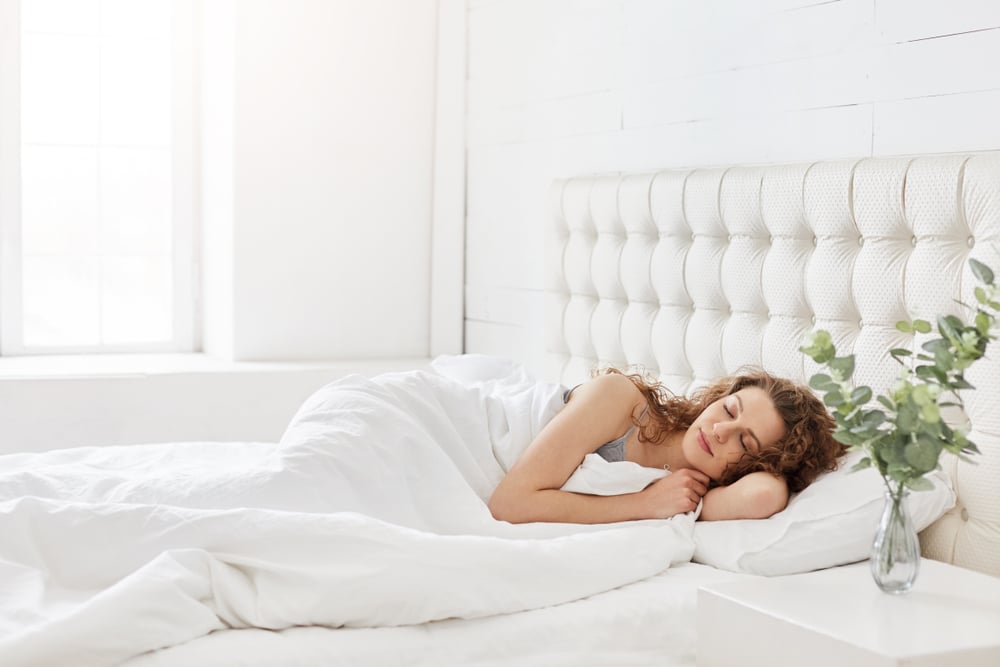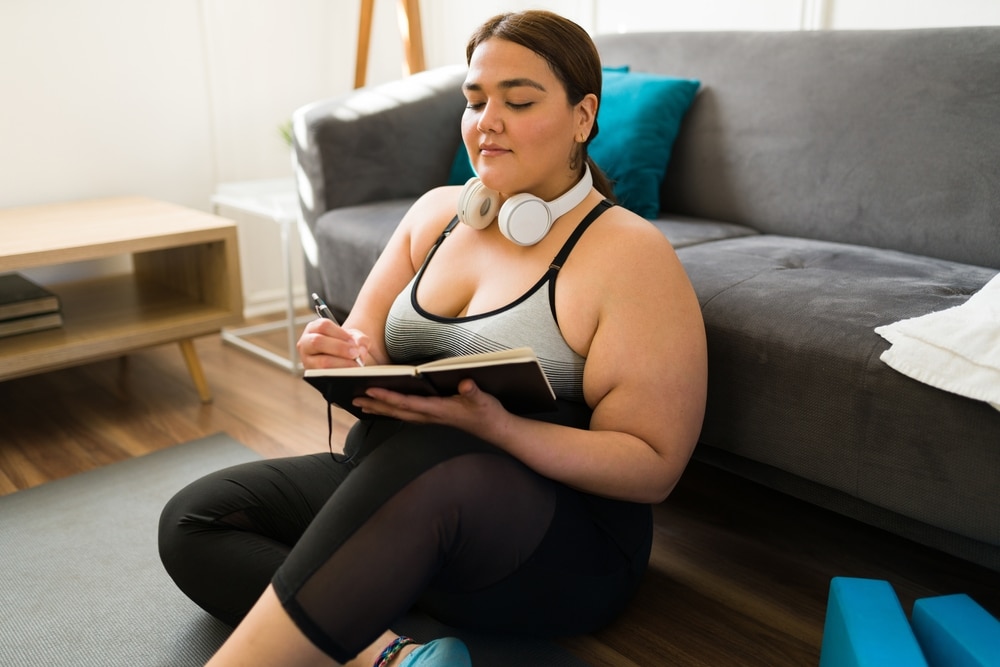With sleep rating highly on the pyramid of health alongside nutrition and exercise, disrupted sleeping patterns can negatively impact your hormones, brain function and physical performance. So, if for whatever reason you’re struggling to reach the recommended 7-9 hours, take some time now to learn how you can get a better night’s sleep.
Increase bright light exposure during the day
In people with insomnia, one study found bright light exposure reduced waking time throughout the night by an hour and improved sleep efficiency from 77.5% to 90% without changing the amount of time spent in bed. Keep your circadian rhythm in sync by exposing your body to natural or bright light during the day.
Limit blue light exposure
Blue light from electronic devices, smart phones, and laptops can impact your circadian rhythm by suppressing your body’s production of melatonin, the hormone responsible for making you feel relaxed and sleepy. If you expose yourself to blue light in the evening, the body is tricked into feeling alert, when it should be relaxing in preparation for bed.
Avoid caffeine later in the day
Caffeine stimulates the nervous system and causes alertness, which is the opposite of what you’re trying to achieve when preparing for bed. Caffeine remains in your bloodstream for up to 6-8 hours, and can easily worsen sleep quality. With this in mind, it’s a good idea to avoid caffeine after midday.
Take a melatonin supplement
A hormone naturally produced by the pineal gland in the brain, melatonin controls the body’s night and day cycles, including sleeping and waking patterns. As day turns to night, generally the body produces melatonin to signal to the body that it’s time for sleep. If the body is exposed to too much light, melatonin production is stalled. The good news is that melatonin can be taken as a supplement to help decrease sleep onset latency, increase total sleep time and improve sleep quality.
Optimise your sleeping environment
External noise is a common cause of sleep disturbance that can lead to long-term health issues. And a high bedroom temperature can affect two of the restorative cycles of sleep; the slow wave sleep (SWS) cycle and rapid eye movement (REM) cycle. To optimise your sleeping environment, try to minimise lighting and noise pollution, set the air con or fan to a comfortable temperature, and ensure the space is relaxing and tidy.
Maintain a sleep schedule
The human body is a creature of habit. In fact, circadian rhythm enforces this. It loops on a 24-hour cycle, aligning the body with sunrise and sunset. If you really want to know how you can get a better night’s sleep, try tuning into that cycle through consistent rise and sleep times. Irregular sleeping patterns are linked to poorer sleep quality and altered levels of melatonin. So, the solution is simple; set daily alarms and follow them for a few weeks until your body finds its natural rhythm.





